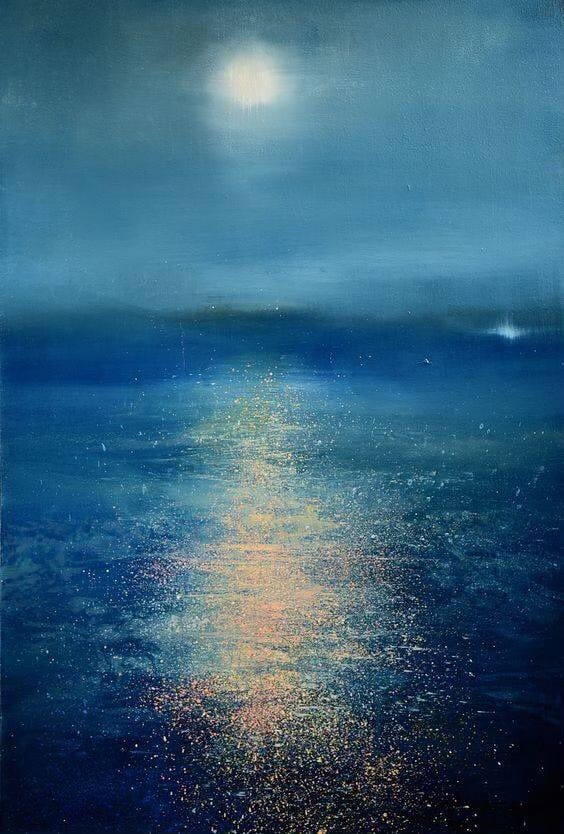Seven ways to find awe, every single day
And why it matters

Dear You,
There’s a LOT here, in today’s Kindred Letter; I hope you’ll savor the art, poetry, and ideas I’ve gathered for you; and since it’s Friday, and you have all weekend, you can go slowly.
But first: are you a vivid dreamer?
Our next Sunday Candlelight Chat is on Sunday, October 27, at 1 pm ET, and it should be extremely fascinating. We’re hosting Lisa Marchiano, Deborah Stewart, and Joseph Lee, the authors, therapists and co-hosts of the popular podcast, This Jungian Life (almost 14 million downloads!). We’ll discuss their forthcoming book, Dream Wise: Unlocking the Meaning of Your Dreams, a definitive handbook on Jungian dream interpretation. And then…we’ll invite you to share your dreams, for interpretation by Lisa, Deb, and Joe!
We’ll send out log-in instructions to all Quiet Life members, in advance of the session. (Members can choose to watch quietly in real time; join in actively; and/or watch the recording later.)
And now: AWE.
My friend, the Johns Hopkins professor David Yaden, studies states of altered consciousness — and when he gives lectures, he sometimes asks the audience to raise hands if they’ve ever “felt at one with all things”. About a third do.
Then he asks them to raise hands if they’ve “had a profound religious experience or awakening that changed the direction of their life.” Usually, a few more hands go up.
THEN, Yaden asks whether anyone has ever “felt awe” - and almost everyone raises their hands.
Yaden now refers to awe as ‘the every-person’s spiritual experience.”
But it’s also the every-person’s pathway, studies say, to greater life satisfaction and generosity, and to lower states of aggression and time anxiety.
Indeed, for the last twenty years, the UC Berkeley positive psychologist (and Quiet Life friend) Dacher Keltner has devoted his career to this one question: “How can we live the good life?”
His answer, after two decades of teaching, researching, and reflecting on this question, is two words, which he writes in capital letters in his recent book:
“FIND AWE.”
*
So today, I’d like to give you seven suggestions of how to find awe — on a daily basis.
1. Consider the moon.

“In Kabbalah [Jewish mysticism],” writes the author Harry Freedman, “the moon is an epithet for the divine presence, the Shechinah, the aspect of God that manifests itself on earth, that those of us who are spiritually attuned may be able to sense or even encounter.” This is why Beethoven’s Moonlight Sonata is one of the best known pieces of music - it captures this in a language beyond words.
You can: listen to Beethoven; gaze at the moon in your own backyard; engage with the many other art forms that invoke it (e.g., Debussy’s “Clair de Lune”, Hafiz’s poem “With That Moon Language,” Van Morrison’s hit song “Moondance”, and many more). You could make a whole project of collecting moonlit art and music.
(You can also read more about the Shechinah here, in my Kindred Letter on What To Do When You Need a Mother.)
2. The intellectual route to finding awe.

